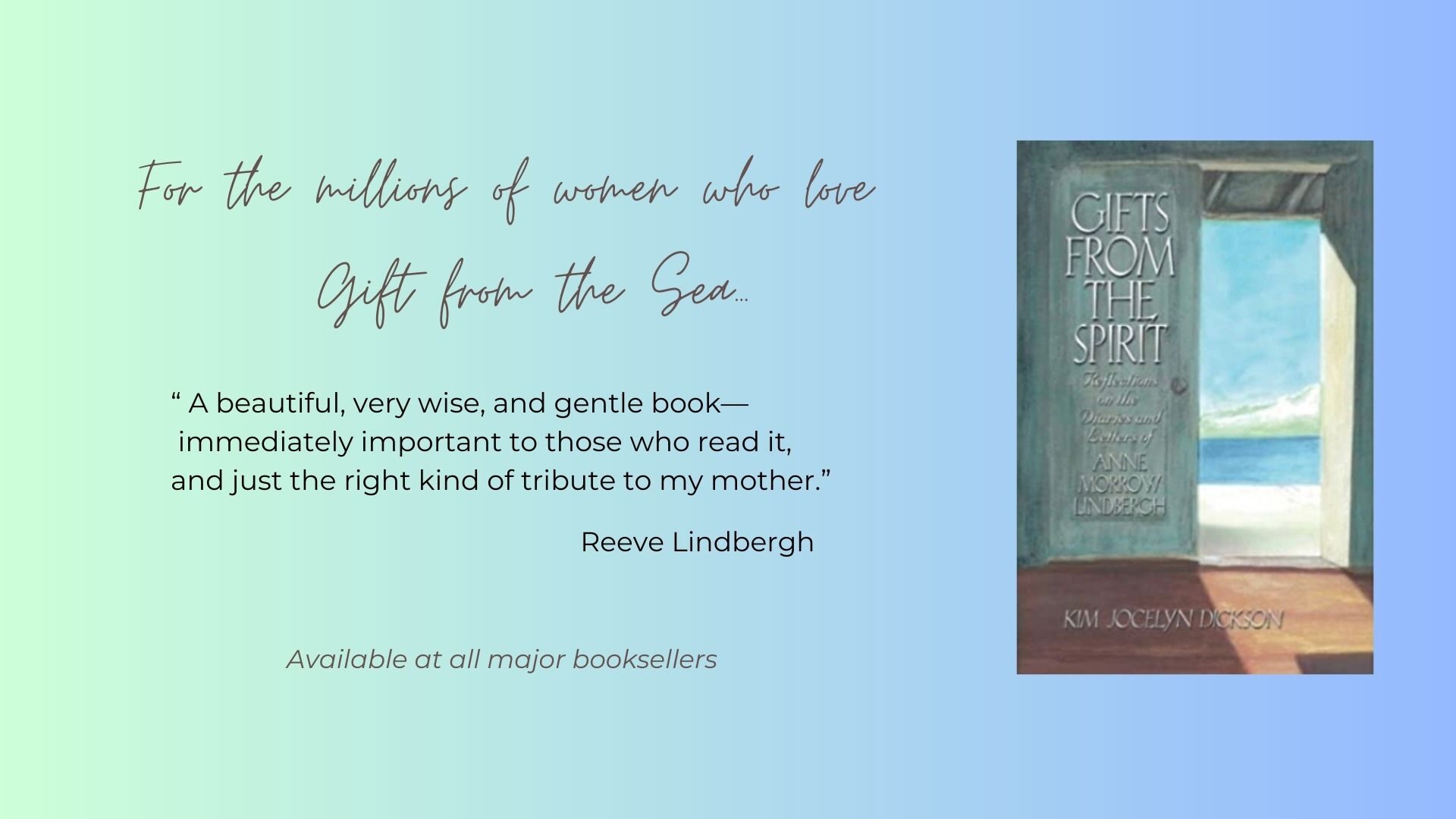
“I am beginning to respect the apathetic days. Perhaps they are a necessary pause: better to give in to them than to fight them at your desk hopelessly; then you lose both the day and your self-respect. Treat them as physical phenomena–casually–and obey them.”
Anne Morrow Lindbergh, LOCKED ROOMS, OPEN DOORS, p. 276
I love this advice. It so goes against the unspoken rule in our culture to grit your teeth and slog on, no matter what.
Feeling tired, sad, or depressed? Get over it. Better yet, take Prozac. And then get over it. At all costs, keep busy, keep moving, keep achieving. Don’t slow down or you’ll never get where you want to be. And the guy behind you will overtake you and get ahead of you.
Who can deny we are an externally motivated culture, taught from early on to move away from the feelings that connect us to our spirituality and inner voice?
Anne struggled with apathy around writing her first book after the kidnapping and death of her son. Her family legacy and that of her husband, Charles, was to suppress pain through action. All of them dealt with difficult feelings by moving away from them. Her parents were wrapped up in public service, and Charles literally moved away from his own grief by taking to the air. Anne was encouraged from all sides to put the loss of her baby behind her by busying herself writing her book.
But she knew that was not the answer.
Anne’s lack of energy for writing, no doubt, was due to the loss of her child and her isolation in her grief. She couldn’t share her sadness with the people closest to her in any meaningful way, and so she worked her feelings out by writing in her diary and confiding in her closest friends.
During this period Anne learned that she had to pay attention to her inner rhythms. For her, learning to go with one’s internal energy flow was like sailing. You can’t force a boat to go further into the wind than it can without losing momentum and your bearings. The only thing to do is give it its head. It will swing and swing and suddenly catch the wind, bite into it and go. You may have to tack back to get on course, but ultimately you get there more quickly. For Anne, the road to writing her book was through her grief. She couldn’t step around it; she had to go through it.
I have often felt that if I lacked energy for doing something I needed or wanted to do that meant it would never be there. Whether it’s the energy for doing something as important to me as writing this book or something as trivial as trimming trees in my yard, any lull in motivation meant the energy would be gone forever; the thing would never happen. I have come to see that energy for any particular thing, like so much in life, simply ebbs and flows. There may be obvious reasons for it–as in one’s energy being tied up in grieving the loss of a loved one–or the reasons may be more mysterious. Maybe the time is just not right.
What is becoming clearer to me is that I can trust my internal inclinations. When I am impelled to do one thing and not another that may even appear to make more sense, I have learned to go with my impulse. When I do, I find, just as in Anne’s sailing metaphor, that while the path may be less direct, I get to my goal more quickly. And I avoid the wasted doldrums of guilt and self-chastisement and “I should be doing such and such.”
Recently I’d been sitting at my computer writing for four hours. I stopped for lunch and began to think about the things I needed to do in the afternoon: go to the bank, get the tires on the car rotated, exchange a scarf I needed for a wedding, stop at the grocery store. Yawn. I was exhausted from sitting and concentrating all morning and felt no desire to do all those things. Yet they needed to be done. I really wanted to get outside–it was a gorgeous, sunny eighty-degree day–and be in the water. And so I did. I went for a swim, dipped in the Jacuzzi, sunned for a while, and relaxed. Two hours later I was rested, showered, and able to do my errands easily. Had I pushed myself to do them first I would have felt tired, cranky, and put-upon. My little detour ended up being just the thing I needed to help me reach my goal.
A list of errands may be a small thing, but I find the principle holds true for the bigger things as well. When, like Anne, I “trust my apathy” and stop to consider what I really want and need in any moment, I hold life and life holds me much more graciously.
[Excerpt from Gifts from the Spirit: Reflections on the Diaries and Letters of Anne Morrow Lindbergh]



